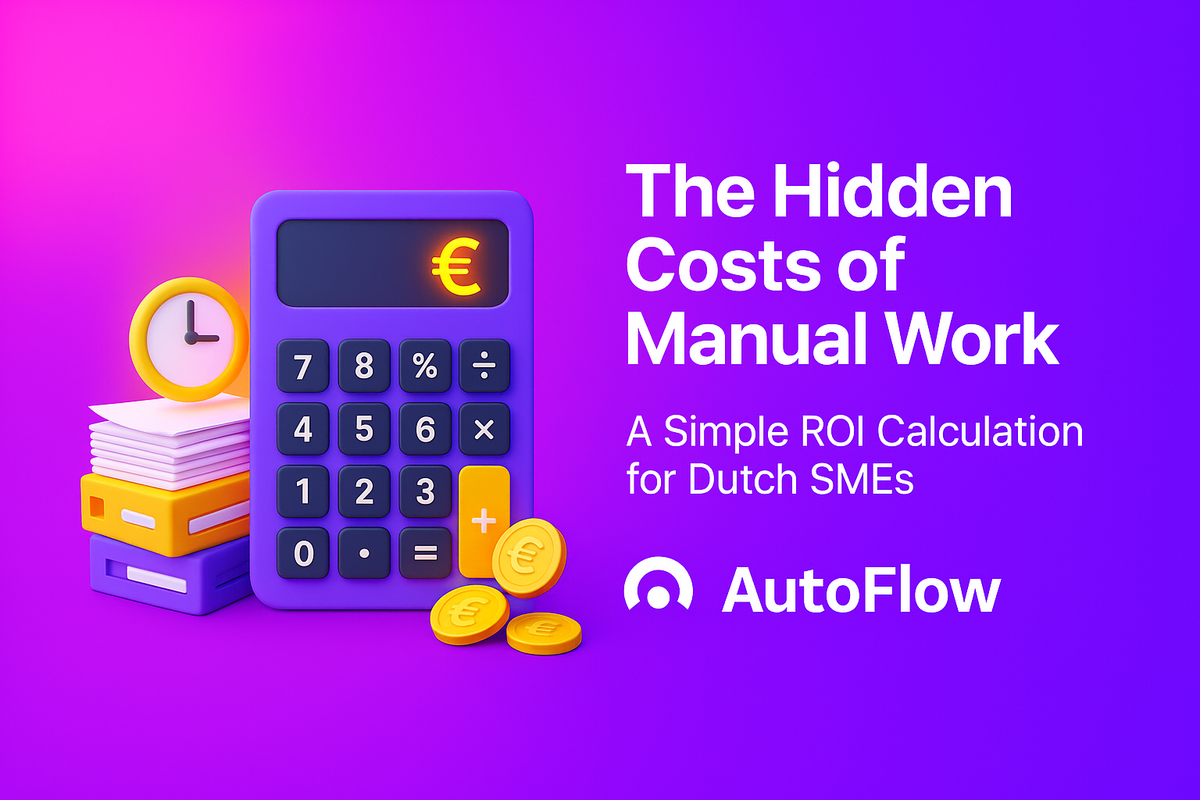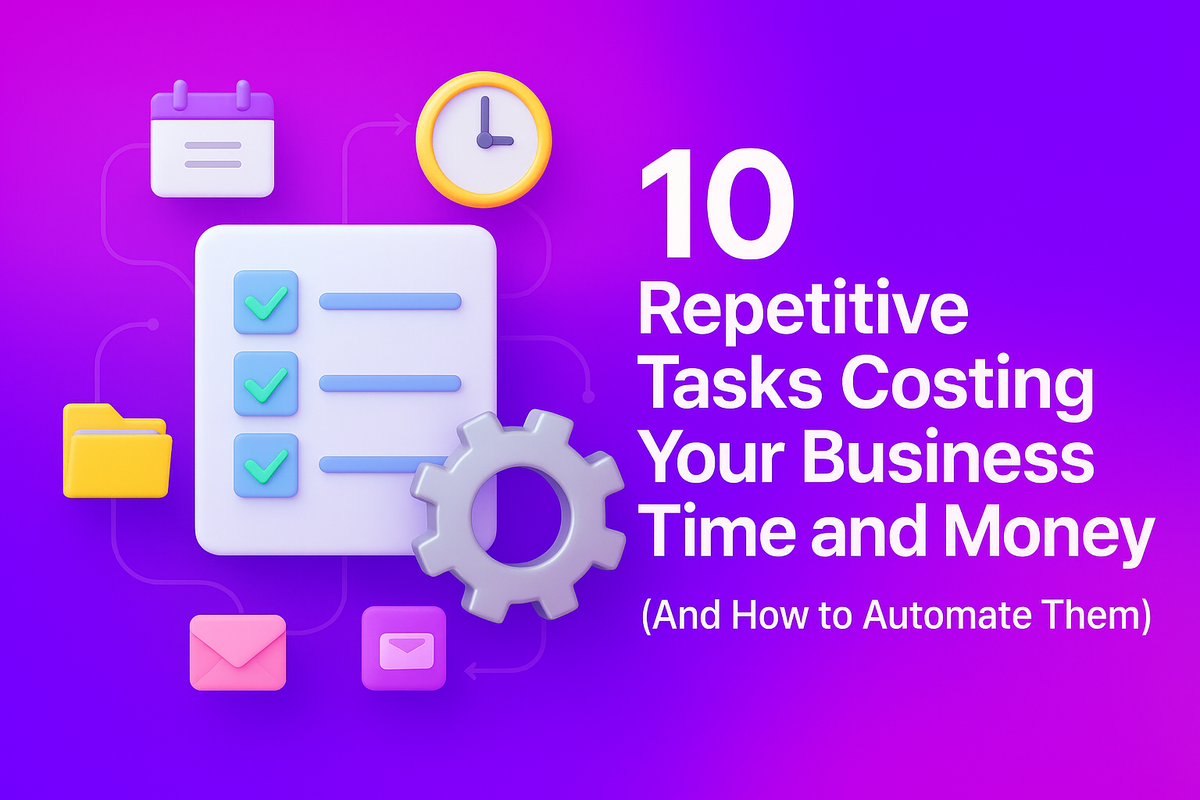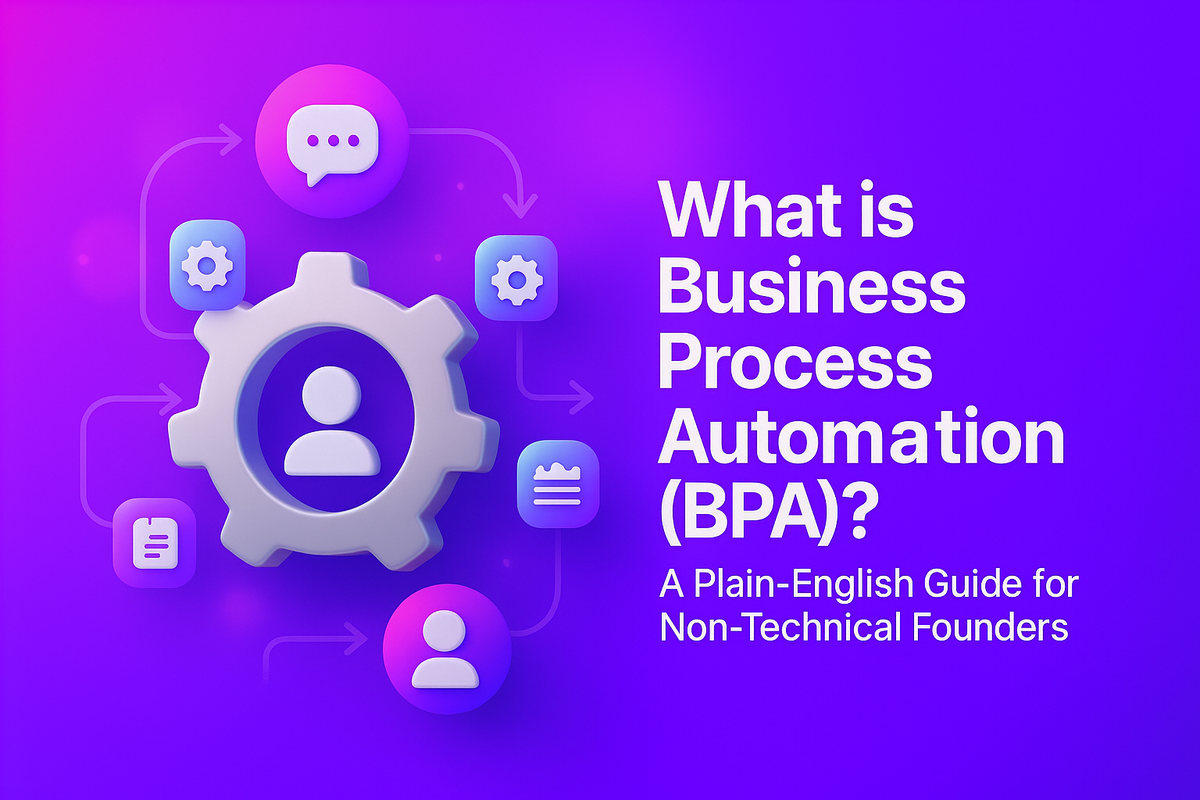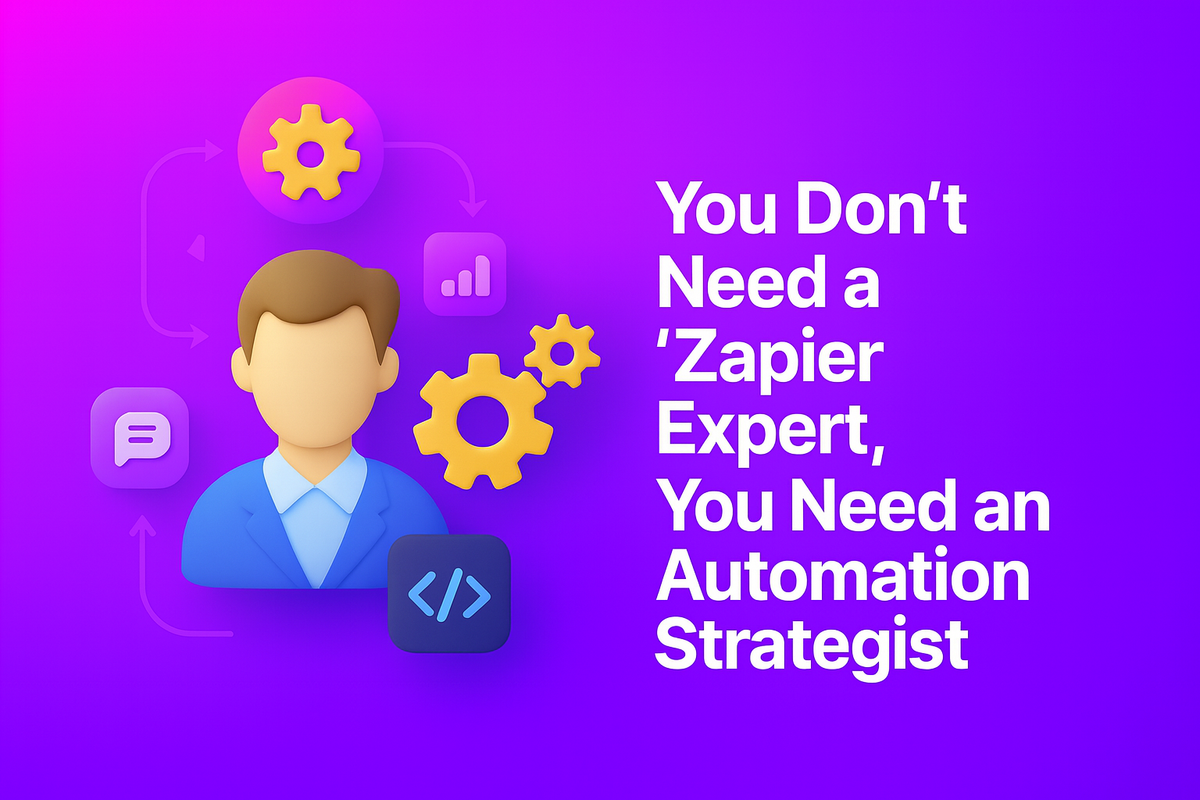
As a business owner in the Netherlands, you are pragmatic. You are "kostenbewust"—acutely aware of your costs. You track your rent, your payroll, and the price of your raw materials down to the last cent. You build budgets, analyze your profit and loss statement, and make decisions based on hard numbers.
But what if I told you that one of your biggest monthly expenses doesn't appear on any invoice or financial statement? It's a silent drain on your resources that you are paying every single day.
This cost is the time wasted on inefficient, manual, and repetitive business processes.
Because we can't see this cost on a spreadsheet, we tend to underestimate it. We accept it as "just the way things are done." But doing nothing is an active financial decision. It's a decision to continue paying a hidden "inefficiency tax."
📊 Your Mission
This guide will give you a simple, practical framework to stop guessing and start calculating. We will walk you through how to measure the real cost of a manual process and calculate the powerful Return on Investment (ROI) you can get from automating it.
Step 1: Identify and Measure One Repetitive Process
You can't manage what you don't measure. The first step is to pick one single process that you or your team does over and over again. Don't try to analyze your whole business. Start with one.
✅ Good Candidates for This Exercise
- Onboarding a new client
- Processing a new order from your webshop
- Creating and sending monthly invoices to retainer clients
- Compiling a weekly sales report
Now, get out a stopwatch (the one on your phone is perfect). The next time you do this task, time yourself from the absolute start to the absolute finish. Be brutally honest. Include the time it takes to find the right files, log in to different systems, copy and paste the information, double-check for errors, and send the final email.
📋 Example: Small Consulting Firm
Let's say you run a small consulting firm. You've chosen "Onboarding a new client." You time the whole process: creating the project folder, preparing the contract from a template, setting up the client in your accounting software, and writing the welcome email.
Your measurement: It takes you 1.5 hours (90 minutes) from start to finish.
Step 2: Calculate the Cost of Your Time
Your time is not free. It's the most valuable resource in your company. To calculate its cost, you need an hourly rate. If you don't already have one, a simple way to estimate it is to ask: "What would I have to pay an experienced professional to do my job?" Given the market in the Netherlands, a rate of €60 per hour for a skilled business owner or manager is a very conservative estimate.
Step 3: Calculate the Annual Cost of the Manual Process
This is where the number gets real. We often dismiss small daily tasks, but when you zoom out and look at the annual cost, the true impact becomes clear.
🧮 The Formula
(Time per task in hours) x (Number of times you do it per week) x (Your hourly rate) x (52 weeks)
💰 Let's Use Our Example
You onboard an average of 2 new clients per week.
The calculation is: 1.5 hours/client x 2 clients/week x €60/hour x 52 weeks
The Annual Cost of manually onboarding clients = €9,360.
Take a moment to look at that number. You are spending nearly ten thousand euros worth of your valuable time each year on a single, repetitive process. This is your hidden cost of doing nothing.
Step 4: Estimate the Cost of the Automation Solution
Now let's look at the investment required to solve this problem.
Scenario A: A Simple No-Code Tool
For a process like onboarding, you can likely automate 80% of it using a tool like Zapier or Make.
💻 Cost Breakdown
- Software Cost: A professional plan might cost €40 per month. (Annual cost = €480)
- Setup Cost: Let's say it takes you 4 hours to learn the tool and build the workflow. (4 hours x €60/hour = €240)
- Total First-Year Investment: €480 + €240 = €720
Step 5: Calculate Your Return on Investment (ROI)
This is the final, powerful step. The ROI formula tells you how much value you get back for every euro you invest.
🎯 The ROI Formula
[ (Financial Gain - Investment Cost) / Investment Cost ] x 100%
🚀 Let's Calculate the ROI for Our Example
- Financial Gain (the cost you eliminated): €9,360
- Investment Cost: €720
ROI = [ (€9,360 - €720) / €720 ] x 100%
ROI = [ €8,640 / €720 ] x 100%
ROI = 1200%
An ROI of 1200% is astounding. For every single euro you invested in automating this process, you got €12 back in productive time within the first year. In the second year, the setup cost is gone, and your only cost is the software subscription, making the return even higher.
Beyond the Numbers: The "Hidden" ROI
The financial calculation is compelling, but the true return is even bigger. Automation also delivers benefits that are harder to put a number on, but are immensely valuable:
🎁 Additional Benefits
- Reduced Errors: How much is it worth to you to never again send an invoice with a typo or ship a product to the wrong address?
- Improved Customer Experience: What is the value of a new client being so impressed by your professional onboarding that they refer a friend?
- Increased Scalability: What is the value of being able to take on 10 new clients next month without needing to work 80 hours a week?
- Better Team Morale: What is the value of having employees who are engaged in interesting work instead of being bored by mind-numbing data entry?
When you add these strategic benefits to the incredible financial ROI, the decision becomes clear. Not investing in automation is a choice to leave money on the table and to keep paying the high, hidden tax of manual work.
🤔 Ready to Run the Numbers for Your Business?
The example above is a framework. A truly informed financial decision requires an analysis of your specific workflows and costs. We invite you to a free, no-obligation Custom ROI Assessment. In this strategic session, we'll help you calculate the precise Total Cost of Ownership of one of your core processes and build a data-driven business case for your automation investment.


